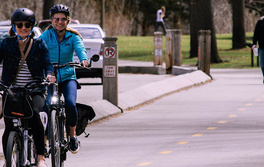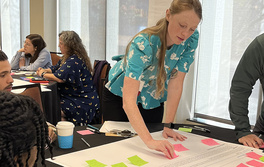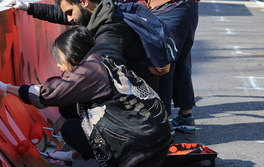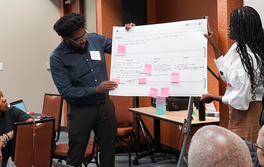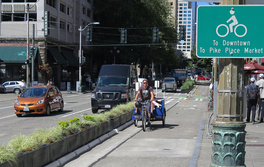
STATEMENT: Stronger Communities Through Better Transit Act Supports Improved, Equitable Access to Mobility & Opportunity for All
The following is a statement from Harriet Tregoning, director of NUMO, the New Urban Mobility alliance, on the Stronger Communities Through Better Transit Act.
NUMO strongly supports the transformational approach of the Stronger Communities Through Better Transit Act. This bill would establish the High-Quality Transit Operating Support Program to support the day-to-day operations of public transit systems that connect essential workers and so many others to their jobs, healthcare appointments, educational institutions and more daily necessities. For too long, federal transit funding has been limited to capital investments. Now more than ever, as the United States begins to recover from the COVID-19 pandemic, we must ensure that transit is positioned to be the strong backbone of an affordable, convenient, multimodal transportation system. To do so, public transportation providers require robust operating support, as this bill outlines.
We also applaud the bill’s focus on extending and improving transit in underserved communities and areas of persistent poverty. Equitable access to jobs and economic opportunity is among the greatest casualties of our current transportation system. Due to low-density land use patterns and inadequate investments in public transportation over the past century, car ownership has become a prerequisite for economic mobility in the U.S. Without a car, residents in many parts of the country have limited access to employment, which impacts their ability to find or get a better job that allows them to broaden their skills and improve lifetime earnings. As a result, lack of access to transportation directly and systematically limits economic mobility. Nearly 20% of Black Americans live in households without access to a vehicle; the same is true for only 5% of white Americans. Improving and expanding transit is critical to building an equitable and just transportation system.
Finally, we welcome the requirement to gather, analyze and report on data that is critical to measuring the degree to which Americans are able to access jobs and essential services, which complements the establishing of access performance measures in the INVEST in America Act. This is a significant step toward more fully embedding access performance metrics in our transportation system so we are measuring what really matters: whether people can get where they need to go safely, affordably and reliably.
We look forward to working with our partners on Capitol Hill, in the non-profit sector and among mobility service providers to ensure that this bill provides the strongest possible support for transit while also encouraging innovative partnerships between transit agencies and other mobility providers. These public-private partnerships are integral to building a multimodal system that brings together transit, shared mobility and active transportation to expand access to opportunity for all.
Please direct media inquiries to Madlyn McAuliffe at madlyn@numo.global.
NUMO, the New Urban Mobility alliance, is a global organization that channels tech-based disruptions in urban transport to create joyful cities where sustainable and just mobility is the new normal. Founded in 2019 as an outgrowth of the Shared Mobility Principles for Livable Cities, NUMO convenes diverse allies and leverages the momentum of significant revolutions in mobility to target urban issues — including equity, sustainability, accessibility and labor — impacted by the shifting transportation landscape. NUMO is hosted by WRI Ross Center for Sustainable Cities.
Header image: Marc A. Hermann / MTA
